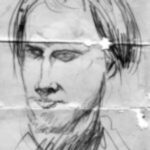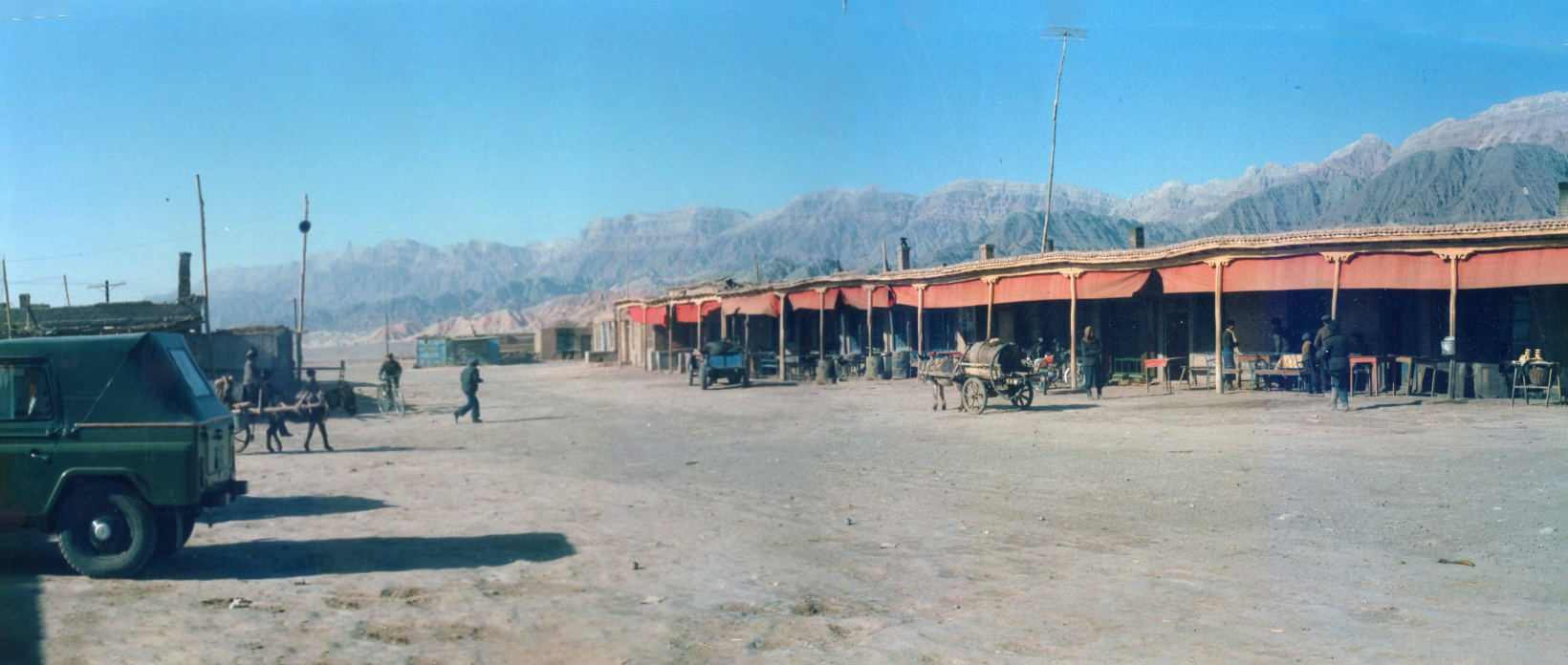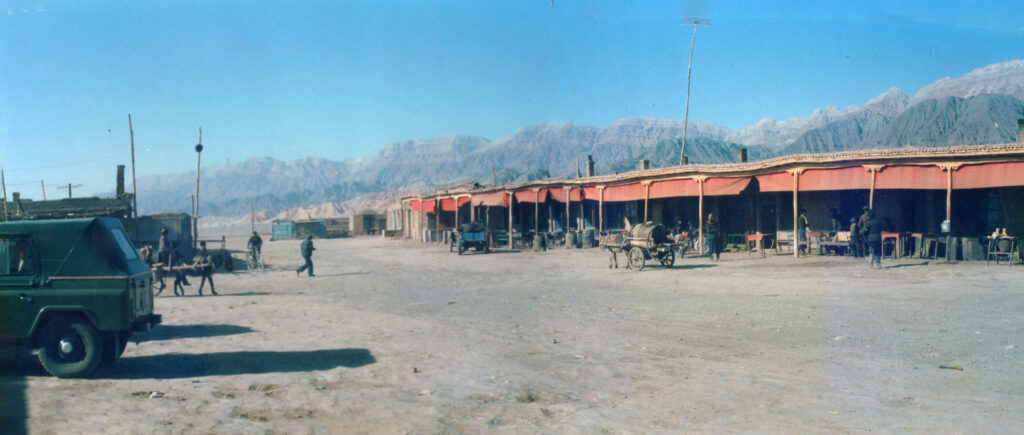
Look at what’s going in Xinjiang? John Oliver discusses it here.
In 1990, a friend and I went to Kashgar (قەشقەر, 喀什). We were students.
It took three days on a bus to travel from Urumqi to Kashgar.
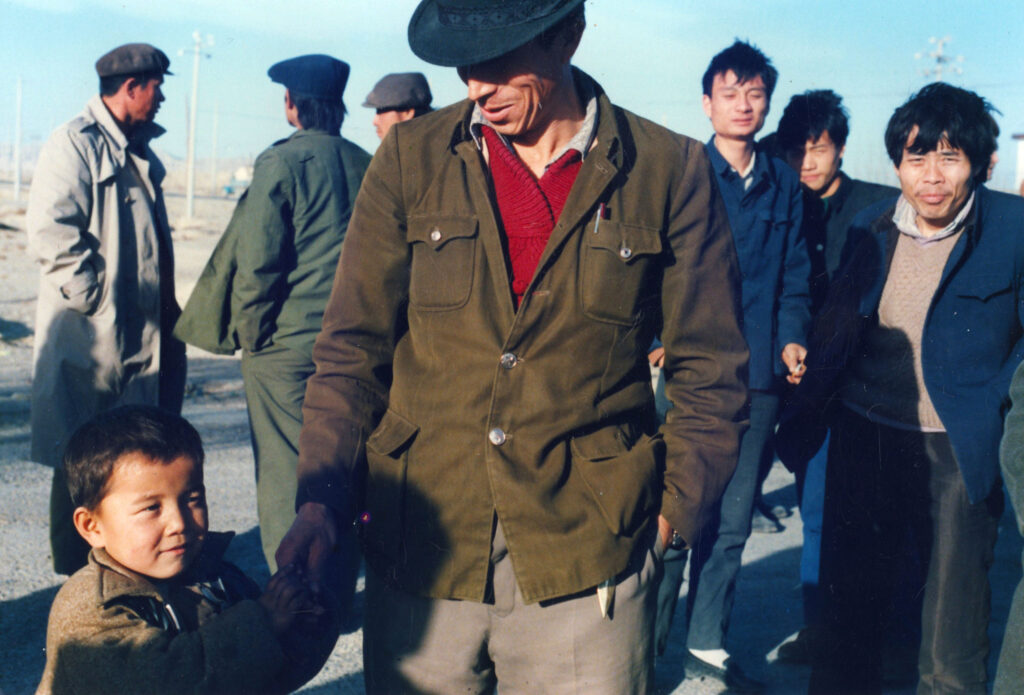
We (my friend and I) were really young. 20!
There wasn’t internet.
I don’t think we knew that there had been an uprising near Kashgar a few months previous to our visit.
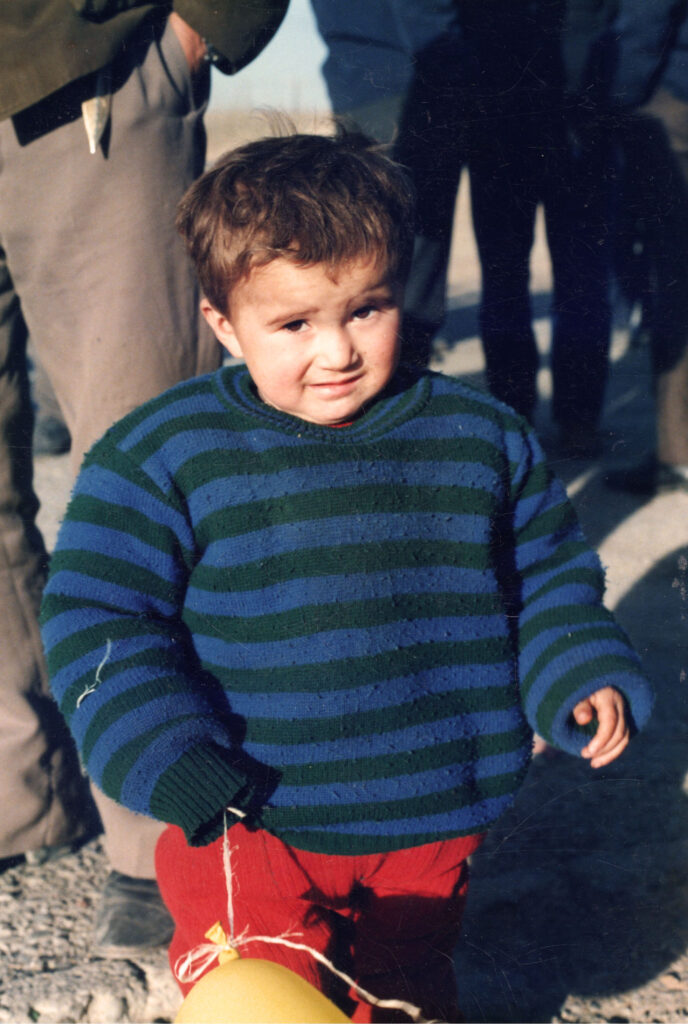
We traveled there from where we were studying in SE China because of our friend and teacher, Liu Nan Shan. He had been in a re-education camp for intellectuals in Xinjiang during the Cultural Revolution. He was an impressionist painter. He gave us introductions to artists in Urumqi and Kashgar. The introductions were little scraps of paper that said “please take care of these American students.”
I may be getting Liu’s name wrong. I have to look through my stuff to find him. He’s in there somewhere.
Although he had been in a labor / re-education camp in Xinjiang, he had nothing but good things to say about Xinjiang and the Uighurs.
He gave us horse-milk tea one day.
We were very young.
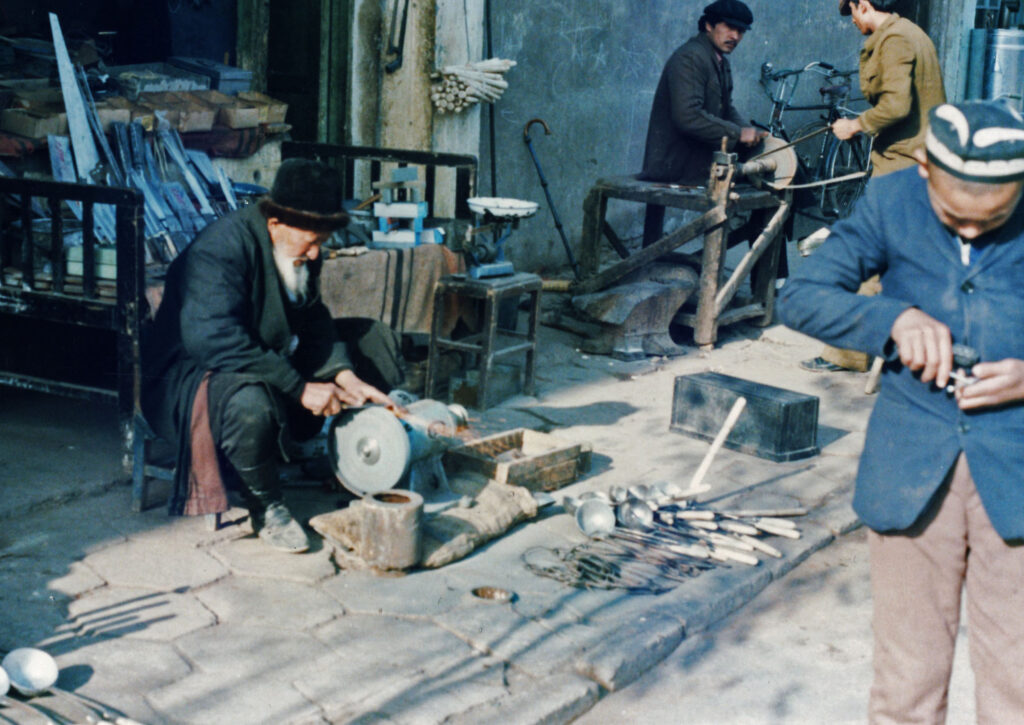
We were students but we were tourists. These are tourist photos.
Tourists, by definition, don’t understand what’s going on.
It’s easy to mock tourists. Still: the alternative is to stay home and be completely ignorant.
I had never heard of a Uighur before I went to China as a student in 1990 and met a painter who had lived among them during the Cultural Revolution.
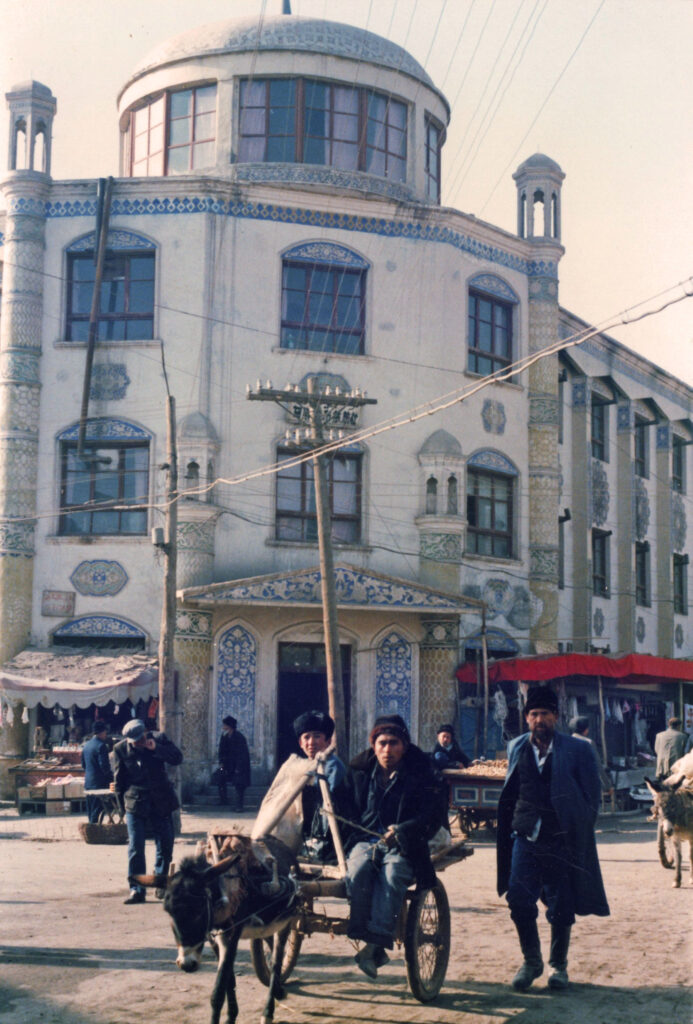
Memory makes impressionists of us all.
There’s not one incident, one phrase, one picture I could show you that could communicate the violent undercurrent of the place. Yes, of course we were being watched. We were watched everywhere. All of China felt on edge — this was just over a year after Tiananmen Square. For the most part, the watching felt inconsequential, almost humorous. In Kashgar, the watching seemed more purposeful; we were like mice in the shadow of a hawk.
That was my impression.
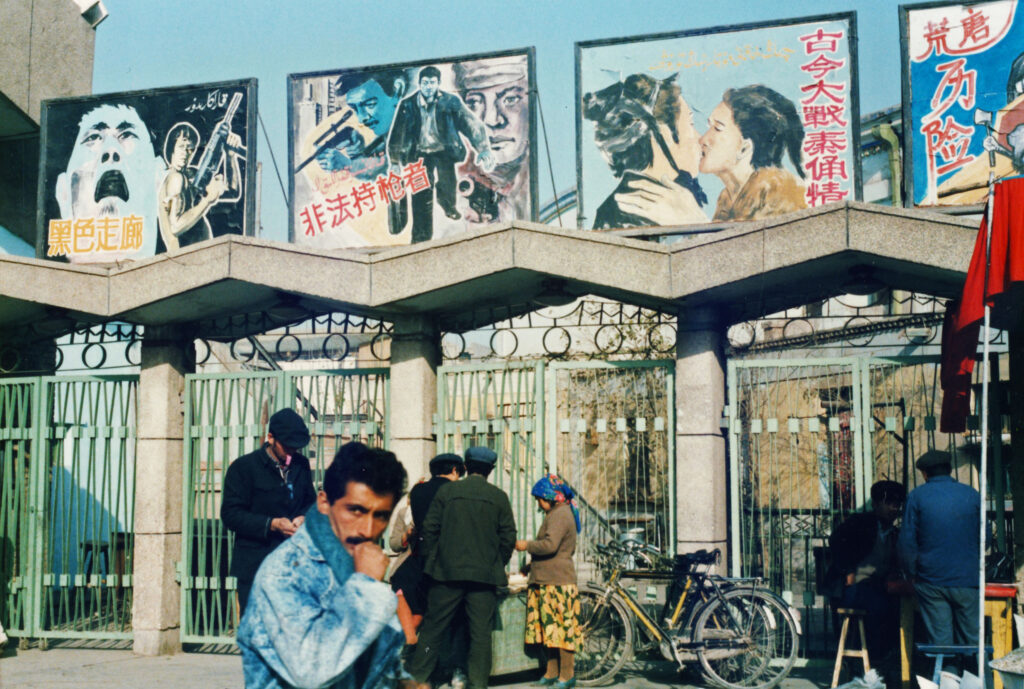
In 1990, Muslims weren’t scary. We didn’t associate them with terrorism; not the entire religion at any rate.
The tension in the air wasn’t religious. It was ethnic.
A Pakistani guy told me he could get Chinese prostitutes for 15 Yuan and Uighur prostitutes for 10 Yuan. His name was Abbas Khan and he ran a travel agency that led tours to the Khyber pass. He kept drunk henchmen around him. He wanted to drink with the Americans. He was a bit scary — but not because he was Muslim, that’s for sure.
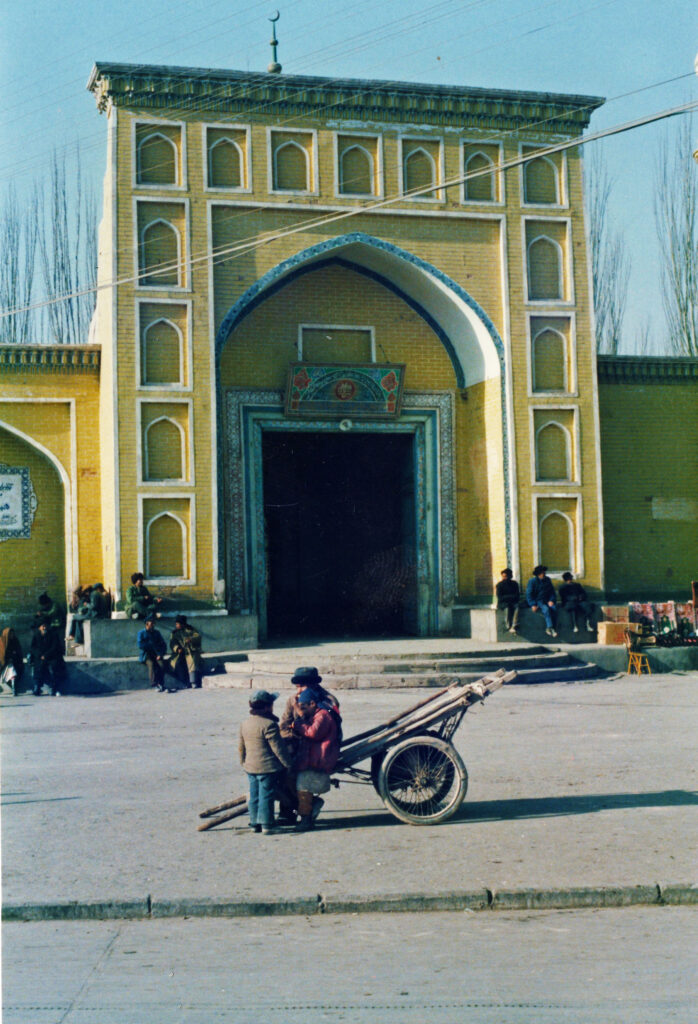
We were in a Chinese store buying winter coats. It was the third time we had bumped into the only other American in Kashgar. (In memory, he is the only other American.) We were lucky, the only other American around was Michael C. Browning, the Beijing Bureau chief for Knight-Ridder news. He clued us in on what was happening. He was so kind.
We were just dumb kids — well, I was, I can’t speak for my friend — and what could he have thought of these students buying heavy military jackets in a state-run store? Instead of brushing us off, he took the time to give us a little primer on what the hell was going on. I still have his card.
Michael C. Browning died in 2006.
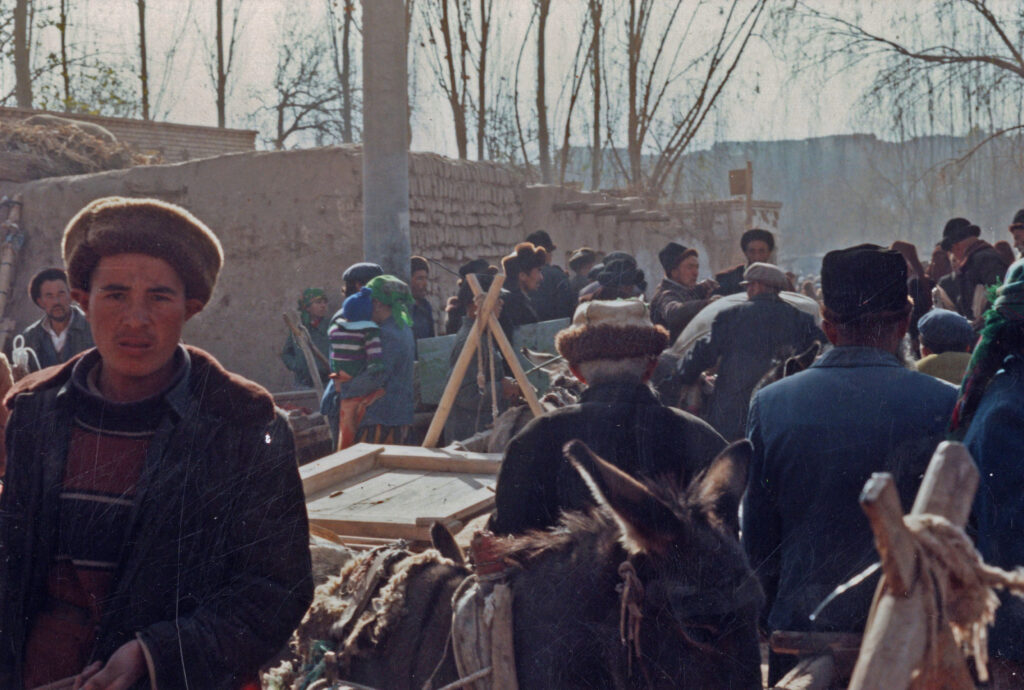
Michael C. Browning wrote this in an essay about watching his sons grow up:
“Snapshots are one thing. Videotapes are another. I suppose we have more means of saving baby pictures than any human beings in history. Yet they are all inferior to memory, memory that recalls how the wind blew, how the sea smelled, how the trees rustled, how innocent and infinitely appealing our children were, as children. And memory itself is so frail.”
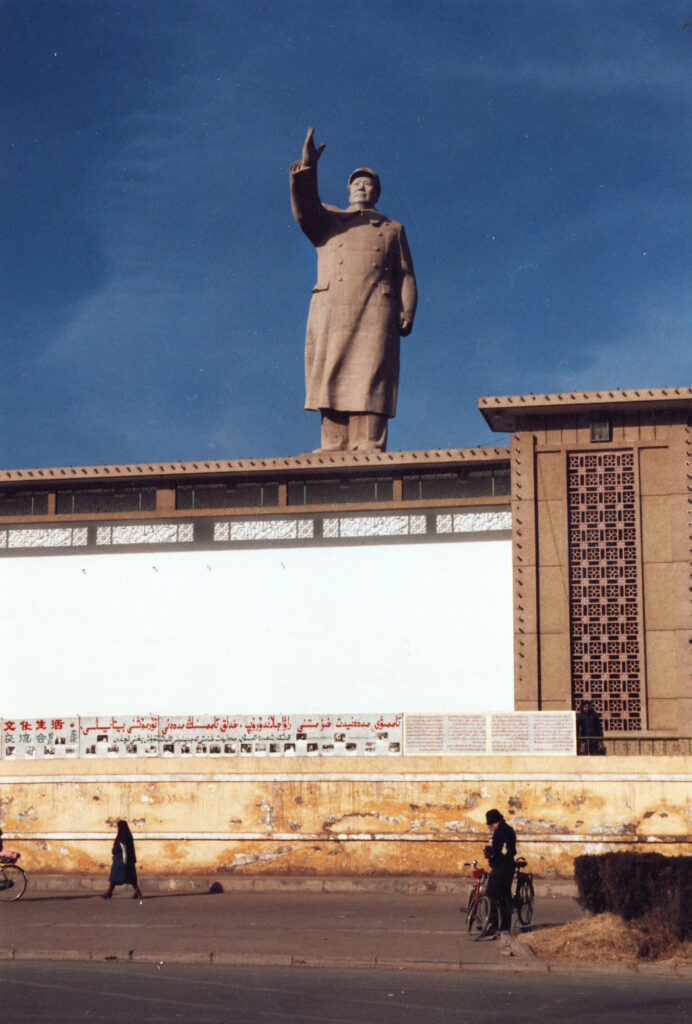
I don’t remember the Mao statue.
I remember Liz, who I was traveling with. That’s her with the bikes. You can tell because she was always wearing that hat.
I remember riding those bikes out of town and stopping to get melon on the side of the road. The melon-seller thwacking the melon apart for us with a long knife. The desert light threw stark shadows from the trees.
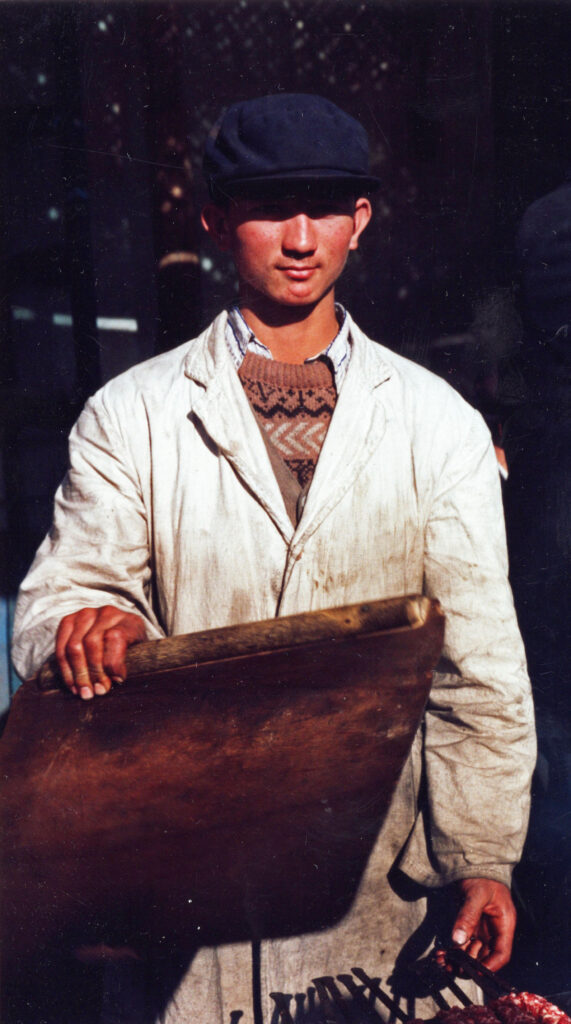
Michael is right. There’s nothing like memory. The picture is almost an insult to the memory.
Pulled noodles from the street stalls were incredible.
We tried to go to the Khyber Pass, but the police kicked us off the bus.
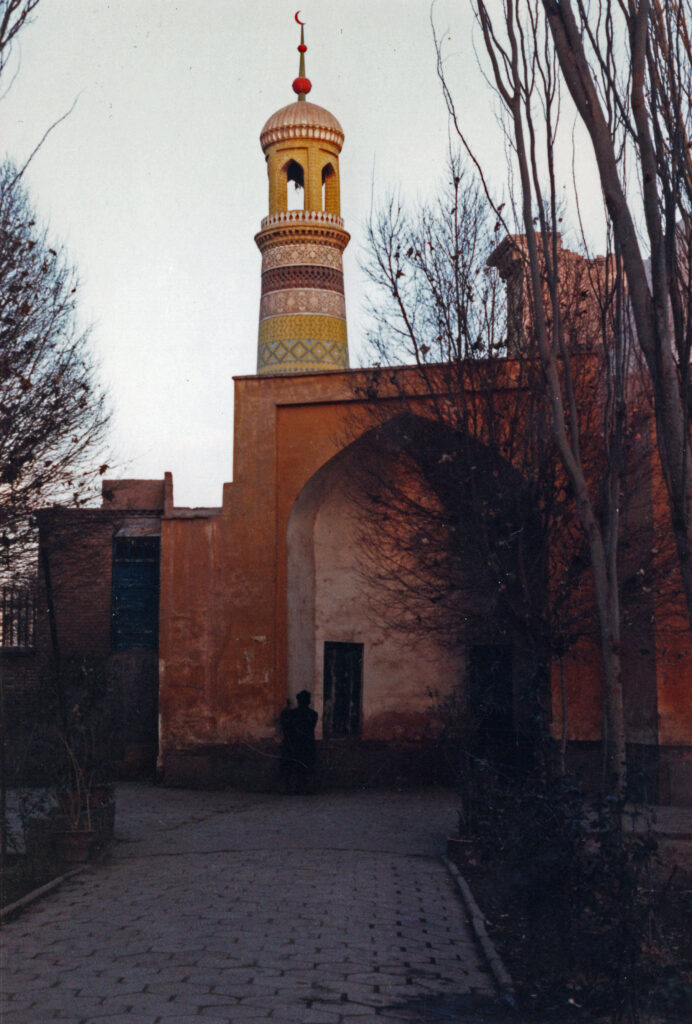
Words, like photos, are poor conduits for memories.
There’s a whole vibrant bazaar I’m holding back for lack of words.
And who cares?
That you saw a thing once.
Thirty years ago, in Kashgar.
